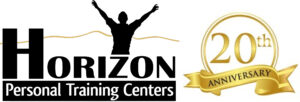Over Training Syndrome:
When Working Out So Much Isn’t a Good Thing
By Vince N.
Before receiving the education on the subject, I have always believed—like many people– that the more exercise, the better! Of course, this is somewhat true, but only to a point.
When it comes to exercise volume, in general, the more you work out, the more benefits you will achieve. But there is a point beyond which the amount of exercise you partake in can actually do more harm than good.
Typically, there are two ways that you can achieve that “point of beyond.” These are:
- Too much exercise without enough recovery time, and/or
- Constant under-fueling of nutrition.
Back in the day, I would train six to seven days a week– sometimes two times a day– while working 40-60 hours a week. I had the “no pain, no gain” mentality, and I would disregard rest.
My nutrition? TERRIBLE! The result of these behaviors got me to a dangerous point where I was affected both physically and mentally.
This point of danger is known as Over training Syndrome (or OTS). OTS leads to a decrement/reduction in fitness level and raises the risk of possible injury. No matter if you are male or female, we are all equally at risk to OTS. This syndrome is not to be confused with “just being tired,” which is to be expected whenever we engage in our workout regimens.
Over Training Syndrome makes you feel rundown; getting out of bed in the morning is tougher than usual. In extreme cases, when the body’s requests for recovery continue to be ignored, long-term neurological, hormonal and muscular symptoms could occur! These symptoms can include an elevated resting heart rate, insomnia, extreme emotional changes, persistent stiff/sore muscles, poor performance, and increased susceptibility to injuries and infections.
Fear not! There are some very important self-care tips to prevent OTS. The primary treatment is REST! And with more severe cases, an extended break from training is recommended. Improved quality and amount of sleep as well as appropriate intake of nutrition and hydration are essentials for full recovery. Preventing nonfunctional overtraining is critical to continued enjoyment and benefit from your exercise training program.
You will be able to minimize the risk of overtraining and keep your exercise and competitions fun and enjoyable!
Some key notes to follow to prevent or recover from OTS:
- Listen to your body! Don’t be afraid to take extra recovery time.
- Recovery and rest between intense workouts are critical, because this is when muscular tissue repair and growth occur.
- Proper nutrition and hydration are important. We suggest half your body weight in ounces for water consumption.
- If you need to seek more nutritional advice, book a 60-minute nutrition consultation with any of our trainers!
- Quality sleep is essential!
Remember, more is not always better.
A trained and licensed Massage Therapist through the Connecticut Center for Massage Therapy Westport –named one of the Top 10 Massage Therapy Schools in Connecticut and having received the excellence in Education award 2016– Vince infuses his vast knowledge of anatomy and physiology when working with his personal training clients. He has been a practitioner for 3 years specializing with clients/patients who suffer with postural distortions, like Thoracic Kyphosis and Lumbar Lordosis. He more recently enhanced his knowledge base by earning a certification in Personal Training through The World Instructor Training School (W.I.T.S), a school that focuses heavily on education in anatomy, physiology and program design. Additionally, Vince has earned certifications in Kinesiotaping, Integrated Cupping massage and Gua Sha Therapy. Having worked with a wide variety of clients ranging from body builders and physique competitors, to youth athletes to weight loss clients and post-rehab clients, Vince wants his clients to know, “My number one goal is your success!”






